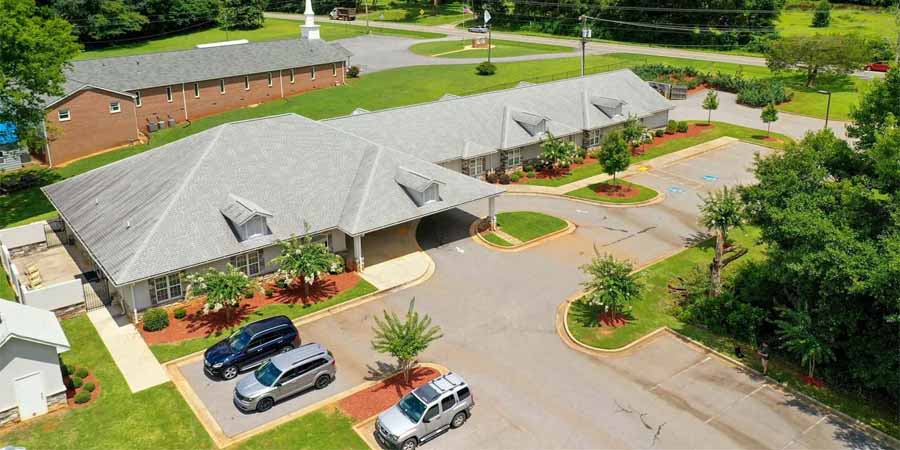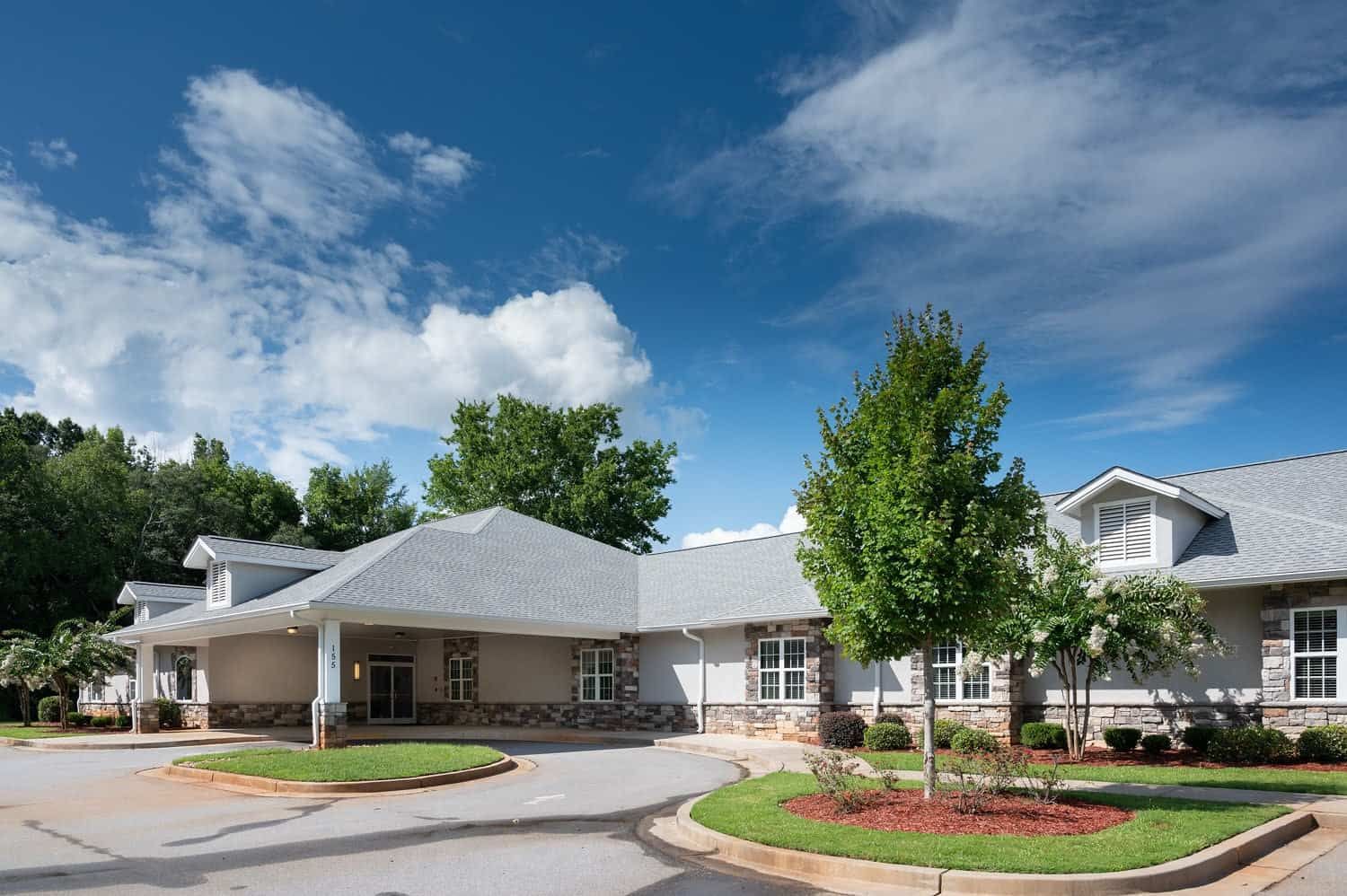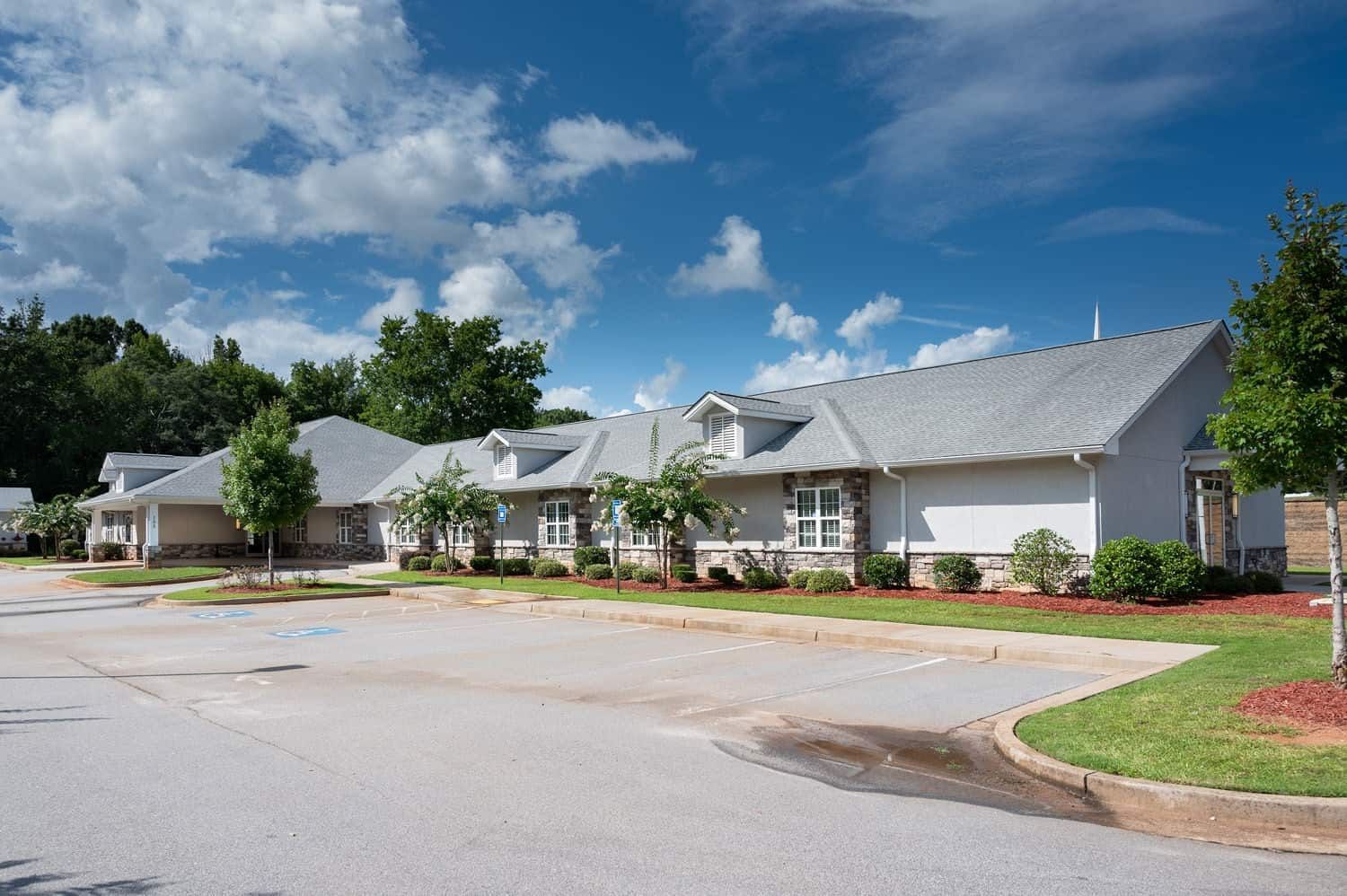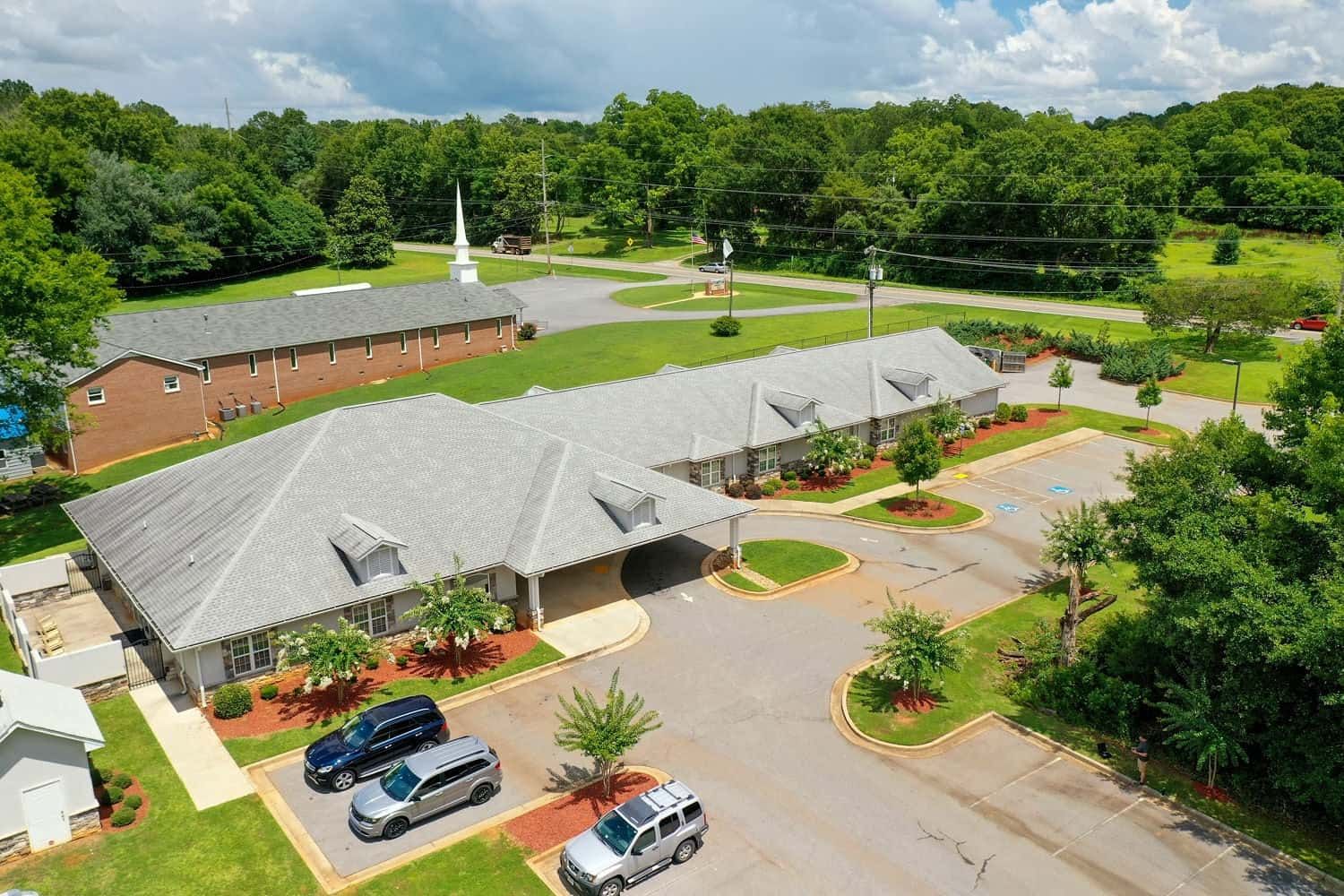Heroin Rehab in Atlanta, GA
At our heroin rehab in Atlanta, Georgia, we help people from a diverse population learn how to overcome their addiction. Our skilled staff of substance use disorder experts knows the complications of getting off heroin. They offer compassionate and consistent care through different types of therapies that help people learn to diffuse their addiction to heroin. With our help, living a heroin-free life is possible for anyone.
Learn more about our Georgia addiction treatment programs, or call us now at 762-366-0100.
About Heroin Addiction
Heroin is made from morphine that is harvested from opium poppy plants. The Drug Enforcement Administration classifies it as a Schedule I drug. These types of drugs have a high potential for someone abusing them and no accepted medical use.
Heroin addiction can quickly take hold of a person, even after just using it one or two times, and puts such a stranglehold on them that they can only quit by going to heroin rehab. In 2022, drug overdose deaths involving heroin totaled 5,871 in the U.S. That number is lower than the previous year, but the number of fatalities involving both heroin and fentanyl rose almost 80% in the same year.
Once heroin addiction takes hold of a person’s life, everything else takes a back seat. The person experiences a dangerous decline in their physical and mental health and a loss of healthy close relationships.

Begin Your Treatment Today
Your journey to a healthier, more fulfilling life starts here. The Retreat of Atlanta’s caring professionals are committed to providing individualized treatment that respects your unique needs. Reach out now to secure your place in our supportive community and take the first step towards a brighter future.
Signs and Symptoms of Heroin Addiction
Some of the signs and symptoms of heroin addiction may be obvious, while others are more difficult to detect. Common signs include:
- Slurred speech
- Red eyes
- Possessing paraphernalia used for heroin
- Unable to get through a day without using heroin
- Withdrawal symptoms when not using the drug
- Legal trouble due to the purchase or use of heroin
- Ability to work or attend school is compromised
- Weight loss
- Discord in relationships with loved ones and friends
- Poor personal hygiene
- Often sleeping or in a trance-like state
- Having to use higher dosages of heroin to get the same effect as before
Short-Term and Long-Term Effects of Heroin Addiction
Heroin addiction causes both short- and long-term effects on a person’s overall well-being. Generally speaking, the longer the person has abused heroin, the worse the effects will be. In addition, if they use more frequently, in higher doses, or with other substances, these effects will be more severe.
Short-Term Effects of Heroin Addiction
- Rush of euphoria
- Warm flushing of the skin
- Dry mouth
- Heavy feeling in extremities
- Drowsiness
- Nausea and vomiting
- Severe itching
- Mental fog
- Slowed breathing
- Decreased heart rate
Most short-term effects do not cause long-term issues. However, some of these effects, like respiratory depression (slowed breathing), can lead to medical issues including coma and brain damage. Still, these short-term effects compound over time, leading to long-term negative effects.
Long-Term Effects of Heroin Addiction
- Deterioration of white matter in the brain
- Diminished decision-making skills
- Difficulty managing stress and regulating emotions
- Poor impulse control
- Skin infections
- Mood swings
- Development of mental health disorders
- Kidney and liver disease
- Heart and lung issues
- Significant diseases like Hepatitis and AIDS
Essentially, heroin use damages the person’s body and mind. This is compounded by the decreased functioning of the immune system that often accompanies drug abuse. Thus, long-term heroin abuse can lead to chronic medical conditions and mental illness.
Recommended: “What Are the Short- and Long-Term Effects of Heroin Abuse?“
How Do I Know I Need Heroin Rehab?
Heroin addiction can take over all areas of a person’s life, leading to negative consequences. Yet, despite these consequences, many people struggle to quit heroin. Being unable to quit heroin—even as the person’s life falls apart—means they need a rehab program.
Additional signs that a person needs heroin rehab include the following:
- Using and obtaining heroin becomes the focal point of the person’s life
- Isolating from family and friends
- Decline in performance at work or school
- Conflicts with loved ones
- Medical conditions emerge because of heroin abuse
- Loss of interest in pleasurable activities or hobbies
Lastly, anyone questioning if they need heroin rehab should speak to their doctor, an addiction care specialist, or a rehab staff member. A discussion about the person’s abuse history and symptoms will help determine if they need rehab.
Our Heroin Rehab Programs Near Atlanta
At our heroin rehab in Atlanta, we provide several levels of care to help people meet their specific needs, including the following:
- Heroin Detox: The first stop is in treatment is a detox program. This program provides round-the-clock medical and psychological support to help the individual get through the challenging first days of recovery.
- Residential Treatment: The next stop after detox is residential treatment or inpatient rehab. This can be done in a smooth transition after detox within the same treatment program. The same multi-disciplinary care continues, and the person learns to unravel the complications of living with a substance use disorder.
- Dual Diagnosis Treatment: Dual diagnosis treatment during inpatient programming helps people who have both a heroin addiction and a mental health disorder.
- Addiction Aftercare Treatment: Lastly, it’s important to continue treatment during an addiction aftercare program. During aftercare, the person maintains their recovery while learning additional coping skills as they get back to their everyday life outside of treatment. Aftercare treatment usually includes outpatient therapy, peer support groups, and sober living homes.
How Is Heroin Addiction Treated?
Substance use disorders not only damage the body, but they also have a tremendous impact on a person’s mind. Often, a person initially begins abusing heroin to ease or hide symptoms of anxiety, depression, PTSD, and other mental health challenges. Our heroin rehab in Atlanta centers around attending several types of therapy that help the person deal with unresolved conflict and trauma from their past.
When a person learns why they abuse heroin and identify their triggers, they can put healthy coping skills in place. This allows them ways to avoid relapse both now and in the future.
What To Expect At Our Heroin Rehab Programs in Georgia
When someone arrives at our heroin rehab in Atlanta, we discuss with them how their addiction started and the length and severity of their symptoms. From there, we match the person with the types of therapy modalities that will work best for them. These include:
- Medication-Assisted Treatment (MAT): Medication-assisted treatment combines behavioral health with FDA-approved medications to treat opioid use disorders, like heroin addiction. At Retreat of Atlanta, we offer Vivitrol and Sublocade injections for those struggling with cravings and abstaining from heroin use.
- Individual Therapy: During individual therapy, clients can discuss personal issues that are related to heroin addiction as well as the negative consequences of addiction. Therapists will help them develop healthy coping skills to manage cravings and prevent relapse.
- Cognitive Behavioral Therapy (CBT): Cognitive-behavioral therapy is one of the most widely used types of psychotherapy. This is because CBT is evidence-based and effective in treating several mental and behavioral health conditions.
- Dialectical Behavioral Therapy (DBT): Dialectical behavioral therapy is a specialized type of CBT that improves skills in four areas: (1) mindfulness, (2) emotion regulation, (3) distress tolerance, and (4) interpersonal effectiveness.
- Psychiatry: Oftentimes, people with underlying mental health symptoms abuse heroin to self-medicate. Psychiatric medications can help to alleviate these symptoms with the guidance of a licensed psychiatrist.
- Group Therapy: During group therapy, a trained therapist facilitates discussion among a group of peers struggling with similar issues. This helps to foster a community of recovery among individuals in the group as they share experiences and provide support for one another.
- Family Counseling: Family counseling helps families heal from the effects of addiction within the family. This also helps to create a healthy home environment for the addicted family member to return to following treatment.
- Holistic Therapy: Holistic approaches can enhance traditional treatments by improving a person’s overall wellness. Common holistic practices include yoga, breathwork, mindfulness, exercise, and nutritional counseling.
The Importance of Getting Help for Heroin Addiction
Retreat of Atlanta doesn’t offer just another drug rehab program you can find anywhere else. We opened our doors to provide world-class treatment that respects each person’s exact needs. This program allows people to face their addiction and overcome it before it’s too late. Heroin addiction is quite serious and often deadly, making it important to get the best help available. While some of the long-term effects are reversible, many are not. Time is of the essence when it comes to seeking treatment.
The Effects of Heroin On The Body
Each day lost in addiction can cause more physical and emotional damage to a person. In fact, the damage can start after only using heroin for a short time. Some of the dangers of heroin abuse include:
- Organ disease (liver, kidney, and heart)
- Soft-tissue infections
- Lung damage
- Collapsed veins
- Contracting diseases transmittable through shared needles
- Brain damage
- Development of or worsening of mental health disorders
- Financial difficulties
- Ruined relationships with loved ones
Anytime someone uses heroin, they risk an overdose. It is sometimes mixed with other drugs or household chemicals the person using doesn’t know about. That can cause a drug overdose and death, as well as someone using a deadly dosage.
Begin Heroin Rehab in Atlanta Today
Have you come to the decision that you or someone you love needs the formal care of heroin rehab? Retreat of Atlanta understands the complexities of addiction and created two levels of residential heroin rehab in Atlanta to help people discover their inner strength. Our detox and residential plans offer you a safe place to live for a short time while you work on restoring your physical and mental health. We also provide important prescription medications that help alleviate many of the symptoms of heroin addiction.
Contact us today to discuss how we can help you put your life back together. Everyone deserves to get structured care provided by specialists who teach them to live a substance-free life.








